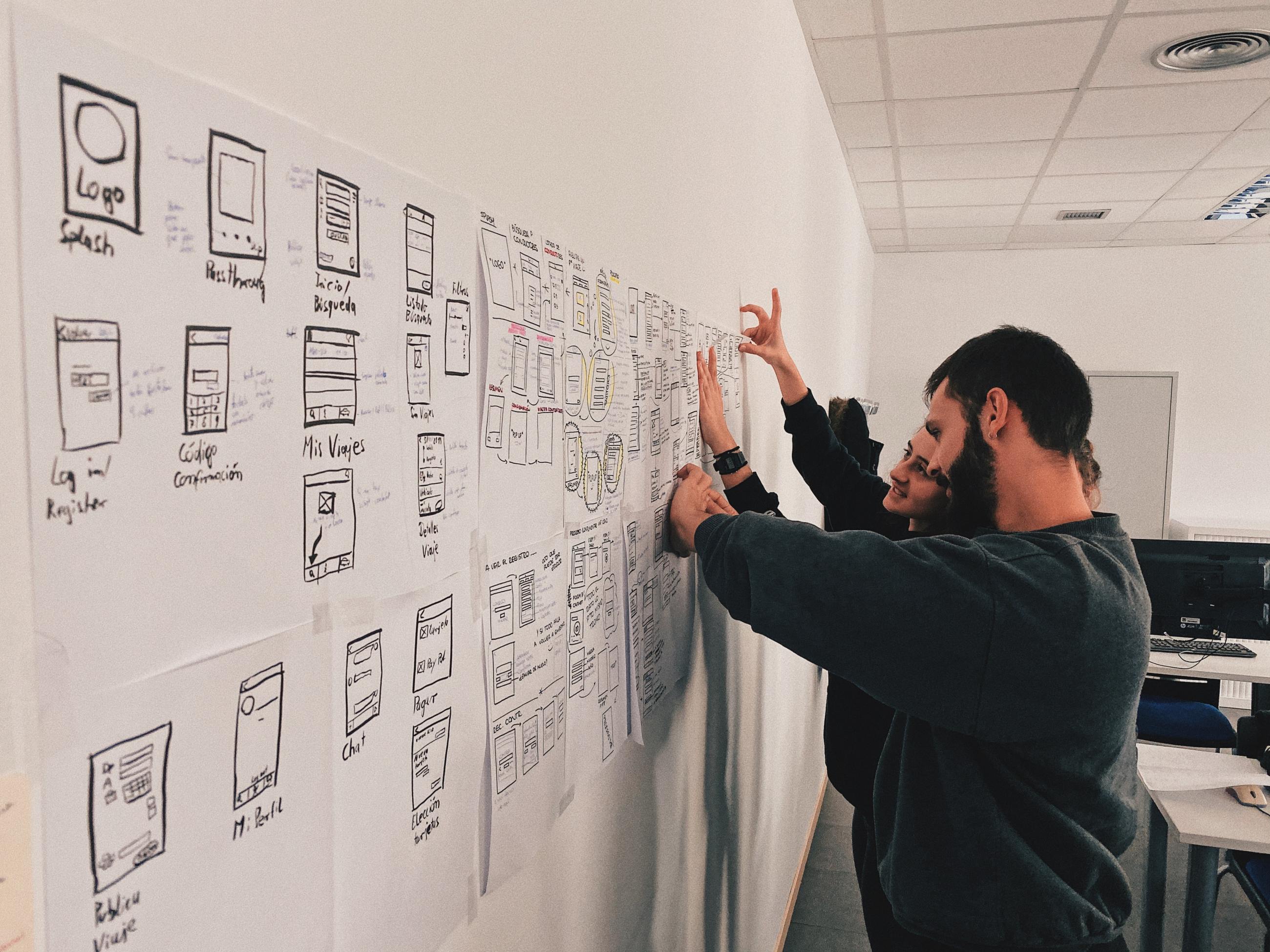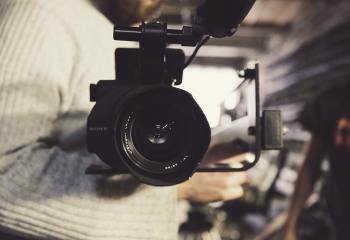
More research and resilient journalists are needed to combat the misinformation disorder
On Oct. 29, 2020, Knight announced nearly $3 million in new support for projects to help journalists combat misinformation. Click here to read the press release.
In the final days of a historic and consequential presidential election, the nation is facing an avalanche of falsehoods spread online and broadcast on cable and streaming television news. Recent polling from Gallup and Knight Foundation found that 8 in 10 Americans share concerns that misinformation will sway the outcome of the election. While Americans agree there’s plenty of blame to go around, more than half say President Trump (58%) and social media (54%) are largely responsible.
To help stem the spread of misinformation and disinformation, Knight Foundation has invested in better equipping journalists with the tools and training they need to quash it and in scholars and researchers at top universities and think tanks to better understand the problem.
Falsehoods around the election are spreading like wildfire. For example, of the 13.4 million mentions of voting by mail on social media; television news, print and online news; blogs and other online forums between January and September, nearly a fourth — or 3.1 million mentions — have most likely contained misinformation, according to The New York Times. Under pressure from their users, advertisers and, more and more, policymakers, internet technology companies are increasingly taking steps to limit the spread of misinformation and dangerous conspiracy theories on their platforms — particularly about COVID-19 and the upcoming election.
Mis- and disinformation are not new. But the internet and digital platforms have shortened the distance they have to travel and opened the possibility for amplification at a global scale — with dangerous ramifications for democracies around the world. These ramifications are playing out in real time and with relatively limited data or knowledge to support meaningful solutions.
Complex challenges like this require sustained investment. Knight has awarded $50 million in grants to foster the growth of an emergent field of study and to catalyze new research on the ways that networked technologies, such as social media, are impacting our democracy. Since last year, we have invested in more than $3 million to train, prepare and provide tools for journalists to combat misinformation during Election 2020.
Knight’s pivotal investments in the approaches to combat misinformation and disinformation and our grantmaking have been anchored in a couple important precepts.
First, these phenomena are not well understood, and much of the public dialogue is awash in conventional wisdom that often doesn’t hold up under scrutiny. To inform better solutions and policy to combat misinformation, society needs a credible fact base that is supported by a robust body of research and led by a diverse network of scholars.
Knight’s $50 million investment in the technology and democracy space has now led to the establishment of new research centers at five top research universities around the country, and scholarship is being accelerated and scaled at numerous other institutions of higher learning, independent research organizations and policy think tanks.
Though relatively new, these grants are already showing early signs of promise. Scholars in the Knight Research Network are seizing these unprecedented times by publishing volumes of new scholarship and injecting data and insights into the public discourse at this critical moment. Examples include:
- Scholars from the University of Washington Center for an Informed Public have been leading voices in dispelling harmful mis- and disinformation about COVID-19.
- A consortium of researchers and experts have joined forces to create the Election Integrity Partnership, which seeks to “detect and mitigate the impact of attempts to prevent or deter people from voting or to delegitimize election results.”
- Numerous Knight-supported scholars have worked to inform actionable policy on a range of issues from content online to digital voter suppression and regulatory approaches to competition among digital platforms.
A second precept of Knight’s investments in this space comes from recognition that trusted journalism is crucial to this effort. Knight’s journalism program believes the best strategy is to position journalists to develop resilience against mis- and disinformation as if they were a chronic illness.
We’ve asked ourselves: how can we connect journalists with experts who can provide the necessary training, tools and other resources, so that journalists can adapt to this increased threat and manage this scourge to our democracy?
To that end, Knight has committed more than $3 million to universities and other organizations to help journalists develop resilience through knowledge, tools and skills. Key projects include:
- First Draft ($1.2M) to deliver training programs and collaborative reporting projects for journalists to help them navigate and halt the spread of misinformation and disinformation online. Led by Claire Wardle, Ph.D., a leading expert on social media, user generated content and verification, First Draft has already trained over 3,000 journalists this year and built a dashboard that offers daily insights on what their investigative research team sees online. The dashboard provides context and suggests how to proceed with the information for your audiences. Journalists can request access to @FD_Update for more team insights.
- Shorenstein Center on Media, Politics and Public Policy at Harvard Kennedy School ($800,000) to equip news executives with knowledge and frameworks to address media manipulation and disinformation by supporting a training program led by Joan Donovan, Ph.D., an world-renowned expert in examining internet and technology studies, online extremism, media manipulation and disinformation campaigns.
- Duke University ($700,000) led by Bill Adair, the creator of the Pulitzer Prize-winning website PolitiFact, to expand the availability of fact-check journalism by using automation to provide instant notifications of fact-checks during live events such as speeches and debates, as well as developing, TV Kitchen, a tool that will help journalists more easily monitor broadcast and cable television election coverage by automatically transcribing spoken words and other elements into text.
- Rochester Institute of Technology ($200,000) to equip journalists with an effective tool and best practices to detect “deepfake” or altered photos and videos, led by Dr. Matthew Wright, Ph.D., a cybersecurity expert with a focus on adversarial machine learning, distributed systems and usable security.
Misinformation and disinformation are going to be around long after the presidential election, and they will continue to undermine our democracy. Communities of color and non-English speakers will be impacted the most. Misinformation makes it difficult for them to deal with a deadly virus and causes them to question whether their votes will be counted. Knight’s investments are important because they help mitigate those challenges today — and to anticipate ones to come. And we will continue seeking opportunities to partner with scholars, researchers and journalists, and to resource efforts to counter these threats and ensure that all communities across America can be informed and engaged.
Paul Cheung is director for journalism and technology innovation at Knight Foundation. Find him on Twitter at @pcheung630. John Sands is director for learning and impact at Knight Foundation. Find him on Twitter at @iohnsands.
Photo (top) by Álvaro Bernal on Unsplash
Recent Content
-
Journalismarticle ·
-
Journalismarticle ·
-
Journalismarticle ·





